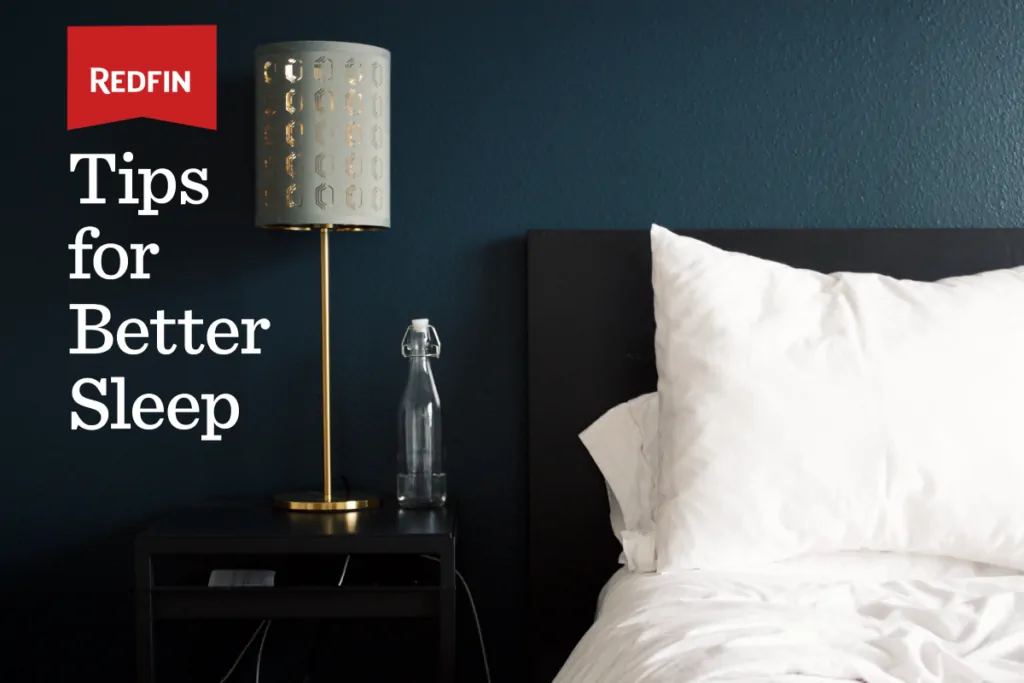
4 Helpful Ways You Can Guide Your College Kid To Better Sleep
My son is 16, and he’s starting to think a lot about college. It’s hard for me to believe that in a couple of years he’ll be headed off to school, living in a dorm, and responsible for himself on a daily basis.
Excited as we are for them, it’s not easy to let our kids go off on their own. We worry about how they’ll take care of themselves, and about the choices they’ll make without us right by their sides. Sleep for teenagers isn’t easy—I talked about some of those teen sleep challenges recently. And sleep can get even more complicated when kids go away to school. For the first time, they’re truly in charge of managing their own sleep schedules.
Here are some tips for helping your college-bound child handle this new responsibility for their sleep:
Send them with the right sleep gear
I like to say: sleep is a performance activity. To do it well, we need the right equipment. That’s just as true for your college kid in his dorm as it is for your family at home. It’s important to give kids at college every advantage in sleeping well. That starts with high-quality sleep equipment.
MATTRESS: If your child is living in a dorm, it’s likely you won’t be able to select a mattress; it will be provided. There’s also a decent chance it won’t be an especially good mattress. I’d love to see colleges and universities invest in high-quality mattresses—and maybe some do. But you can’t count on it.
Still, there are things you can do to help ensure your child’s mattress at school is more comfortable, healthful, and sleep-promoting.
Get a mattress cover. This is a must-do for hygiene—good for your child’s overall health and sleep. Dust, dirt, and the micro-critters that live in mattresses can trigger allergies, which can interfere with sleep (not to mention their ability to concentrate on that bio exam). Most dorm beds are size twin XL, but check with the college staff before you buy.
Pick a mattress topper. Mattress toppers can add both comfort and support to any mattress, including those maybe-less-than-stellar dorm beds. They come in different types, including latex, memory foam, and down, each with a different feel and firmness. The right type depends on your child’s individual needs for comfort and support. (If you need a refresher on the difference between comfort and support, read my how-to on picking the right mattress.)
There’s a very good chance you won’t know the condition and characteristics of your college-bound child’s mattress at school before move-in day. In a perfect world, you’d have your kid test out their school mattress beforehand. For most dorm-dwellers, that’s probably not realistic. Get some information from them about their sleep comfort and preferences beforehand—do they like a soft bed (down) or a firmer one (latex)? Are they already using memory foam at home?
If your college kid is living off campus, you’ll most likely get to choose their mattress (because you’ll be buying it for their apartment). Using my pick-a-mattress guide, invest in the best-quality mattress for your budget. Most healthy teenagers and young adults are resilient sleepers with bodies that haven’t yet weathered the wear and tear that makes a high-quality mattress so essential for older adults. I’m not suggesting you must buy a top-of-the-line mattress for your college kid (do that for yourself, if you can). But automatically opting for the cheapest option isn’t the best move, if you can afford to do otherwise.
Remember, you’re investing in your child’s sleep in one of the most critical developmental periods of their lives. And higher-quality mattresses will last longer than low quality ones. A well-made mattress purchased during their college years will last up to 7 or 8 years. That’s enough mattress mileage to take them well into their twenties, sleeping on a great bed.
PILLOW: If you’re not selecting the mattress your college kid is sleeping on, her pillow is the most important piece of sleep gear you’ll choose. The right one will make a huge difference to how comfortably and well she sleeps. A good pillow helps your child maintain healthy sleep posture, keeping the body aligned and avoiding physical discomfort and the restless sleep that comes from the wrong pillow.
Use my How to Pick a Pillow guide with your college-bound kid to identify the best pillow for their individual needs. Don’t just grab the least expensive pillow you spot in the aisle of that big-box store where you’re loading up on college gear. Resist the temptation to grab an old pillow off your guest bed and send it along to college. It’s absolutely worth investing in the highest-quality pillow for your budget. Remember, pillows typically need replacing every 18 months or so. (Memory foam pillows are the exception; they’ll last about 3 years.) The pillow your child starts with as a first-year is not going to see them through graduation. Be prepared to replace your collegian’s pillow at least once during a four-year college stint.
SHEETS and BEDDING: Your college-age child is likely to want to have some input on these selections, largely on style grounds. That’s great! Just make sure you don’t compromise on quality. Sleeping on natural fabrics—cotton, flannel, wool—makes for a more comfortable, restful night’s sleep. These breathable fabrics do a superior job of enabling the body to regulate its temperature effectively while sleeping. The role of temperature in sleep is important, and sometimes overlooked. Especially in dorm rooms and apartments where students may not be able to control the temperature of their bedrooms, the right bedding can make a big difference. And make sure they have at least two complete sets of sheets, to make it easy for them wash their bedding more often.
Help them control their sleep environment
Let’s face it, college dorms aren’t exactly conducive to healthy sleep. Your college-bound kid will be living in close quarters with a roommate, in a building and a campus filled with young adults up at all hours of the night, studying, partying, being loud and goofy, and blowing off steam.
It’s going to take more than a good pillow to help your kid sleep well while away at school. A few additional tools tucked into their suitcase can help them manage their sleep environment better, despite all the things they can’t control.
Eye mask: For when his roommate is up late studying, and your kid wants to sleep. A simple, essential tool that’s a big help in getting your child the darkness their body needs to make the sleep hormone melatonin.
Ear plugs: Wouldn’t you want a supply of these if you were living in a dorm? I would. Be aware, anyone who suffers from tinnitus or who is susceptible to ear infections shouldn’t sleep with earplugs.
Portable bedside sleep therapy: I’m a big proponent of engaging all the senses to help with sleep. That’s why I’m such a fan of the iHome Zenergy Sleep System, which has lights, sounds, and scents that all promote sleep. (Full disclosure, I consult with iHome as a sleep expert.) It has a smartphone app your kids can use to customize their sleep experience, and a gradual wake alarm to help them make that midmorning class. Thinking of getting your college kid a regular, old-fashioned alarm clock for their bedside? Skip it and do this instead.
Sleep tracker. I don’t consider a sleep tracking device essential for every kid going off to college. Some college-age kids just won’t remember to use it. But if your child is the type who will get into tracking their sleep (and plenty will), then a sleep tracker is a great way to keep them attentive to their nightly rest and supply them with actionable information about their sleep. My favorite tracker is the SleepScore Max, which is far and away the most accurate tracker I’ve seen. It delivers personalized information to your college sleeper, and helps them set goals. I can vouch for the sleep tips it offers, since I helped to create them!
Prepare them to manage screen time away from you
You’ve probably got a screen time policy in your house. I know we do in ours. Having raised a teenager in the age of smartphones and social media, you also know that these policies can be tough to enforce.
I bought my teenage kids each a pair of Swanwick Glasses, with blue-light blocking technology. (I use them too, when I’m looking at screens at night.) These glasses block the melatonin-suppressing, alertness-promoting blue light that our smartphone and tablet screens have in high concentrations.
These glasses are a great idea for a college-bound kid, who’s apt to be staring at screens pretty late in the evening—but might not mind wearing these retro-looking specs for their nighttime screen use.
Talking to your college student about sleep
So, we’ve covered the gear and the gadgets. Now let’s look at what we want our kids to know, and how we want them to think about sleep as they venture out on their own for the first time.
First, it’s important for parents (and grandparents) to remember a couple of important points.
College kids are almost exclusively evening chronotypes (In my book, The Power of When, I call this chronotype Wolves, to describe the late-night favoring people who are alert at midnight and dragging before 10 a.m.). The biological changes that cause this preference for evenings over mornings kick in at the start of adolescence, and don’t even begin a shift back toward a preference for earlier times until around age 20. That shift back is gradual, and can take years. Moreover, some young adults stay Wolves throughout their adult lives (I’m one.) Of course, there’s the occasional Lion (early-morning preference) in the college-age mix, but it’s a rarity.
It’s unrealistic to expect even the most disciplined, motivated college-age student to function with the sleep-wake habits and patterns of an adult. When talking with your college kids about sleep, keep the reality of their biology, and their emotional maturity, in mind. When working with young adults to set goals for sleep, don’t let perfect be the enemy of good.
Remind them, don’t only think about sleep at bedtime. Encourage your college-bound teen to think about sleep as an interrelated part of their whole day. Too often, many of us fall into thinking about sleep as a compartmentalized part of life—or worse, a blank slate where nothing happens. The reality is, sleep affects every aspect of our lives—our health, our mental, emotional, and intellectual abilities, our relationships. And how we live throughout the day affects how we sleep. The sooner our young adults can start thinking about sleep this way, the better off they’ll be.
For example, just-released research suggests that teenagers who follow a Mediterranean diet may get better grades because of the positive influence a Mediterranean diet has on sleep quality.
Remind your college student that eating well, exercising, being moderate with alcohol, limiting caffeine and sugar, aren’t just good practices in their own right—each one also will help protect and improve sleep. And that better sleep will help your college student feel and perform better in every aspect of their lives, from academics to social relationships to sports.
Encourage them to set realistic schedules. Talk with your kids about their sleep biology, and describe what it means to be a Wolf living in world that’s overwhelmingly set up for Bears (the middle-of-the-road chronotype that applies to a majority of adults). College usually means a big improvement from high school in class start times. But it’s still a good idea for college students to plan their morning schedules thoughtfully and realistically, taking into account their individual preferences for bedtime and wake times. Signing up for an 8 a.m. class that they attend less-than perfectly is a likely to be a lot less valuable than a 10 a.m. class they can make on a regular basis. Especially in their first year or two, a realistic, sleep-friendly schedule can help college students adapt to managing their routines on their own, without setting the bar too high, too fast.
Motivate them to better sleep, using their own interests. Collage is an amazing time for young people to discover and deepen their passions. You know a lot about what motivates and interests your college-age child. Since sleep is so connected to every part of life, you can make a strong case for how sleep matters to whatever it is they care about most.
Got an athlete? Focus on how sleep improves physical and competitive athletic performance, including speed, power, and reaction time.
Is your kid contemplating pre-med? Let them know how sleep affects memory, learning, and analytical skills.
Parent to a budding playwright or musician? Fill them in on how sleep enhances creativity.
Whatever your college student does, they’ll do it better, more happily and with less stress, when they get enough high-quality sleep.
I wish your kid the best of luck at college, with plenty of fun, plenty of awesome learning and discovery, and yep—plenty of sleep.
Sweet Dreams,
Michael J. Breus, PhD, DABSM The Sleep Doctor™
by | Jul 30, 2018 | Family, How to Sleep Better




These 4 ways would be a huge help for your kids to have a better good night sleep.